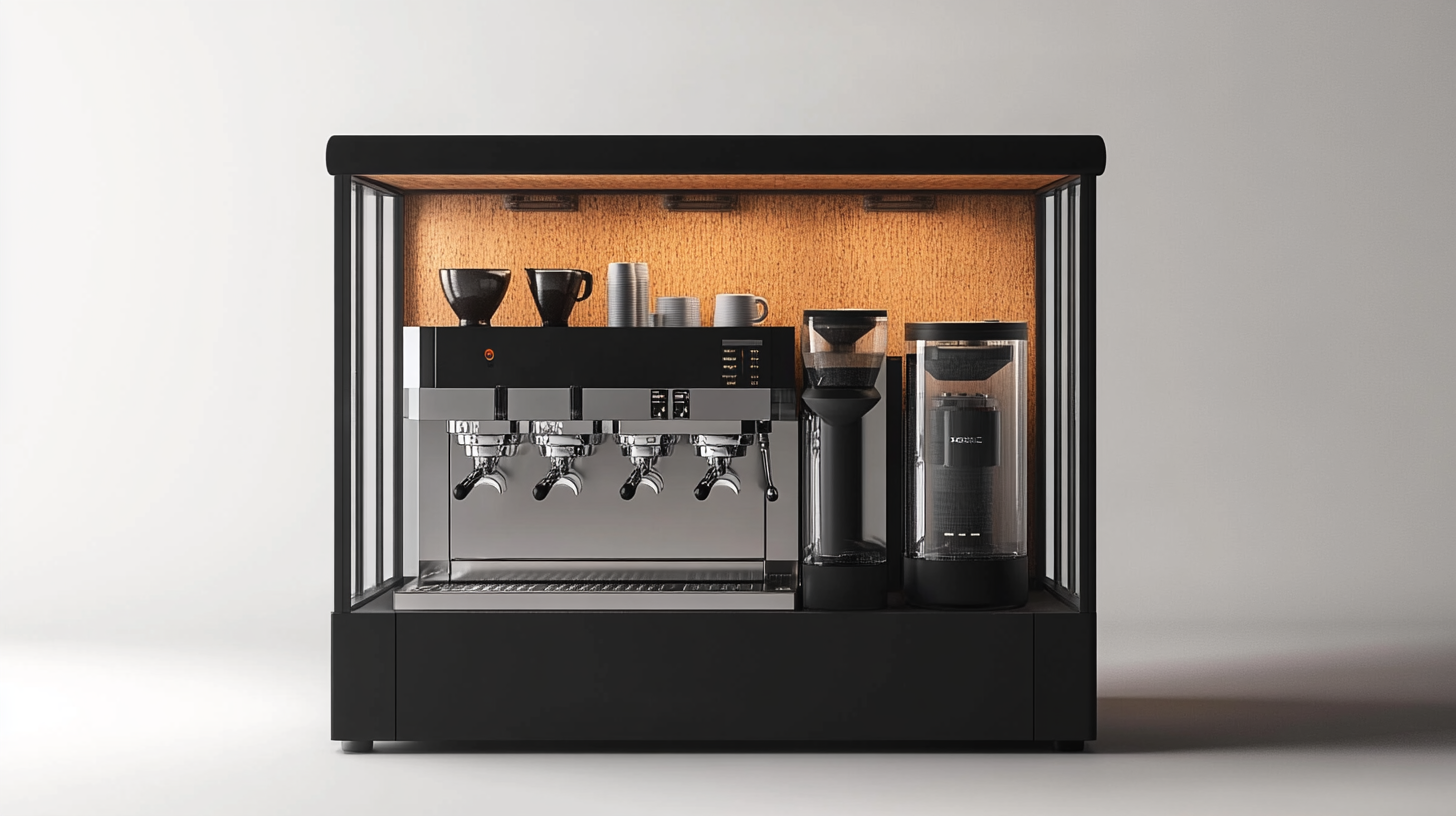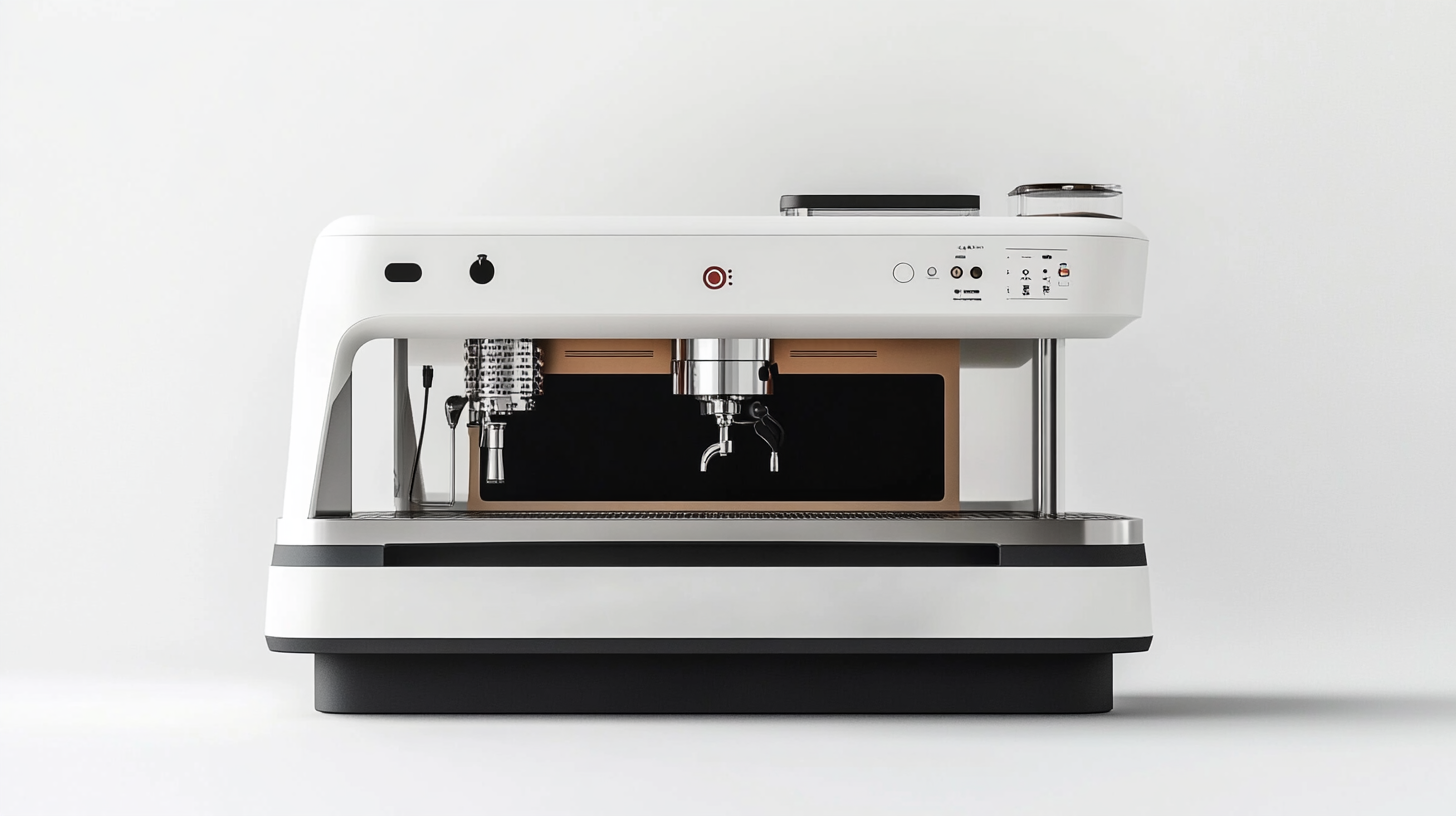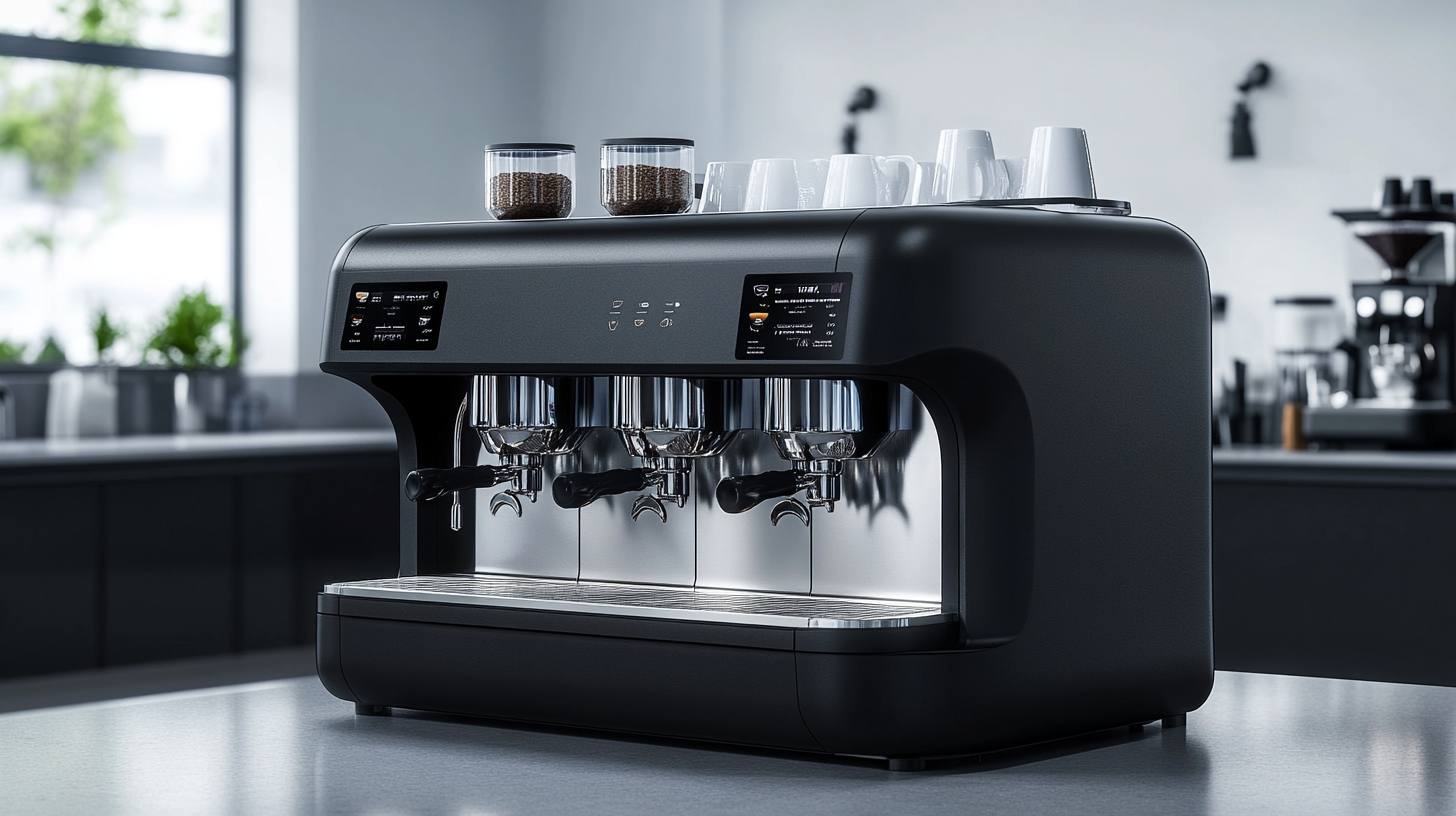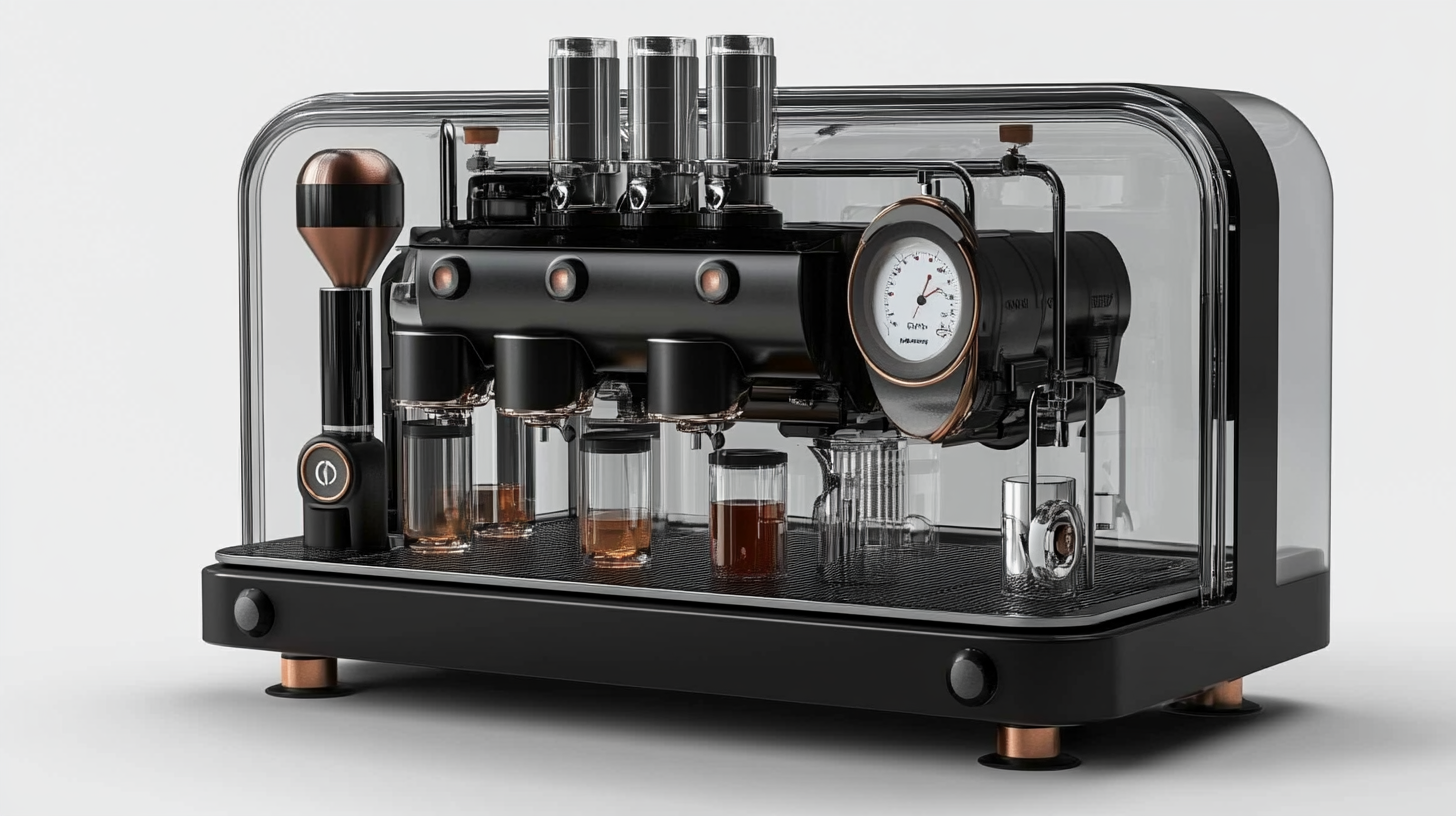

Innovative Approaches for Sourcing Commercial Coffee Machines Globally
The global coffee machine market is witnessing robust growth, driven by an increasing demand for high-quality coffee among consumers and businesses alike. According to a report by Research and Markets, the commercial coffee machine market is expected to reach USD 9 billion by 2025, growing at a CAGR of 6.5% from 2020. This surge in demand reflects a transition not only in consumer preferences but also in the way coffee is sourced and served, pushing businesses to adapt innovative strategies for procurement. As more establishments recognize that a sophisticated commercial coffee machine can enhance customer experience and operational efficiency, the need for sourcing these machines through diverse global channels has become imperative.
In this dynamic landscape, sourcing strategies must be agile and forward-thinking. The increasing competition among cafes, restaurants, and hospitality businesses necessitates that stakeholders leverage technology and data-driven insights to identify and procure the best commercial coffee machines available. With sustainability becoming a focal point in sourcing decisions, understanding the market trends and supply chain dynamics is crucial. This blog will explore innovative approaches for sourcing commercial coffee machines globally, examining the latest trends, technologies, and best practices that can help businesses thrive in a highly competitive environment.

Understanding the Global Coffee Machine Market Landscape
The global coffee machine market is witnessing considerable growth, driven by the increasing demand for fully automatic coffee machines. According to recent market analysis, the market was valued at approximately USD 6.41 billion in 2022 and is projected to reach around USD 11.3 billion by 2032, with an average compound annual growth rate (CAGR) of 4.7%. This upward trend indicates a robust interest in innovative coffee solutions that cater to the evolving preferences of consumers. Understanding the landscape of this market reveals key factors contributing to its expansion. The rising popularity of specialty coffee and the growing trend of coffee consumption at home are driving investments in new technologies and designs. Moreover, the increasing availability of advanced coffee machines that offer customization and convenience plays a significant role in attracting coffee enthusiasts and casual drinkers alike. Such innovations not only meet consumer demands but also enhance the overall coffee experience. As manufacturers and suppliers navigate this dynamic market, they must focus on strategic sourcing and development to stay competitive. Innovations in sourcing methods and supply chain management are critical to addressing global challenges, ensuring quality, and optimizing production costs. With the market expected to reach a valuation of USD 7.08 billion by 2033, businesses must leverage these innovative approaches to successfully capture market share and drive sustainable growth amidst changing consumer preferences.

Key Factors Influencing Sourcing Strategies for Coffee Machines
Sourcing commercial coffee machines globally requires a nuanced understanding of key factors that influence sourcing strategies. As highlighted in recent market research, the global specialty coffee market is poised for significant growth, projected to reach USD 60,953.1 million by 2033, with a compound annual growth rate (CAGR) of 10.5%. This growth indicates a robust demand for high-quality coffee machines, compelling coffee shop owners to adopt innovative sourcing approaches.
When choosing an espresso machine, coffee shop managers must consider multiple factors including cost, machine capabilities, and supplier reliability. The U.S. coffee machine market, which is experiencing continued expansion, showcases various product categories such as espresso, drip filter, and bean-to-cup options. According to a 2030 report, espresso machines hold a significant share, driven by consumer preference for specialty coffee. This means that sourcing strategies must align not only with current market trends but also anticipate future demands, ensuring that the selected machines can meet evolving customer expectations.
Additionally, understanding the competitive landscape is crucial. The right sourcing decision revolves around evaluating the best brands in the market that align with a coffee shop’s identity and quality promises. With the global drip coffee maker market also on an upward trajectory, estimated at USD 2,391.1 million in 2023 and expected to grow at a CAGR of 3.5% through 2030, coffee shop owners can leverage this growth by selecting versatile machines that cater to diverse customer preferences while maintaining operational efficiency.

Innovative Technologies Transforming Coffee Machine Sourcing
The coffee industry has long been known for its rich traditions, but emerging technologies are revolutionizing how businesses source commercial coffee machines. With advancements in automation and artificial intelligence, companies are now able to streamline their procurement processes and select equipment that precisely meets their operational needs. Innovative software platforms not only provide detailed specifications for various machines but also analyze market trends to help buyers make informed decisions.
Additionally, global connectivity has never been easier, thanks to the rise of e-commerce and digital marketplaces. Businesses can now access a wide array of suppliers from different parts of the world, which fosters competition and encourages manufacturers to innovate continuously. Virtual reality and augmented reality tools are also stepping in, allowing potential buyers to experience coffee machines virtually before making a purchase, thus reducing the risks associated with sourcing. These technologies are ensuring that coffee professionals can find the best equipment suited to their taste and quality requirements without the geographical constraints of the past.
As the demand for specialty coffee grows, so too does the need for cutting-edge machines that can meet consumers' evolving preferences. Innovative approaches in sourcing are not only saving costs but also enhancing the quality of service providers can offer. By combining innovative technologies with smart sourcing strategies, businesses can stay ahead in a competitive market, ensuring they deliver the perfect cup of coffee to their customers every time.

Building Sustainable Relationships with Global Suppliers
Building strong, sustainable relationships with global suppliers is essential for businesses looking to source commercial coffee machines effectively. The coffee equipment market is diverse and dynamic, filled with numerous suppliers varying in size, specialization, and capabilities. By prioritizing sustainability in these relationships, companies can ensure not just reliability in their supply chain, but also contribute positively to the communities and environments they engage with.
To build these sustainable relationships, it's crucial to start with transparent communication. Engaging suppliers in open dialogues about ethical sourcing, environmental practices, and shared values can create a solid foundation for collaboration. This collaborative approach fosters trust, encourages innovation, and allows for mutual growth. Regular check-ins and feedback loops ensure that both parties feel valued and can address any challenges promptly.
Additionally, exploring local suppliers in different regions can enhance sustainability efforts while reducing carbon footprints associated with international shipping. Establishing partnerships with local businesses often leads to innovative solutions tailored to specific markets, and supports the local economies. By embracing a network of global suppliers who share a commitment to sustainability, businesses can create a more resilient and responsible sourcing strategy, ultimately leading to better products for their consumers.
Evaluating Quality and Performance Standards in Sourcing
In the competitive landscape of sourcing commercial coffee machines, evaluating quality and performance standards is essential. The introduction of comprehensive quality metrics in various industries has demonstrated its significance in enhancing performance and achieving transparency. According to industry reports, integrating a structured approach to assessing quality can significantly improve operational efficiency. For instance, the Organ Procurement and Transplantation Network's revised bylaws on transplant program performance metrics, approved in July 2022, exemplify how shifting to standardized evaluation systems elevates service quality and accountability.
Moreover, the impact of green procurement practices on quality performance cannot be overlooked. A meta-analysis examining the link between green procurement and organizational performance revealed that firms adopting eco-friendly sourcing report higher operational efficiency and increased stakeholder satisfaction. In the coffee machine sector, implementing sustainable sourcing strategies not only aligns with consumer demand for environmentally responsible products but also enhances the overall quality and reliability of the machines sourced.
Furthermore, aligning quality measures across organizations reflects the broader movement towards transparency and accountability. The Universal Foundation's initiative has facilitated the establishment of consistent quality metrics across various entities, leading to improved performance outcomes. By embracing these innovative approaches to quality evaluation, companies sourcing commercial coffee machines can better align their procurement strategies with global best practices, ensuring they meet both customer expectations and regulatory standards.
